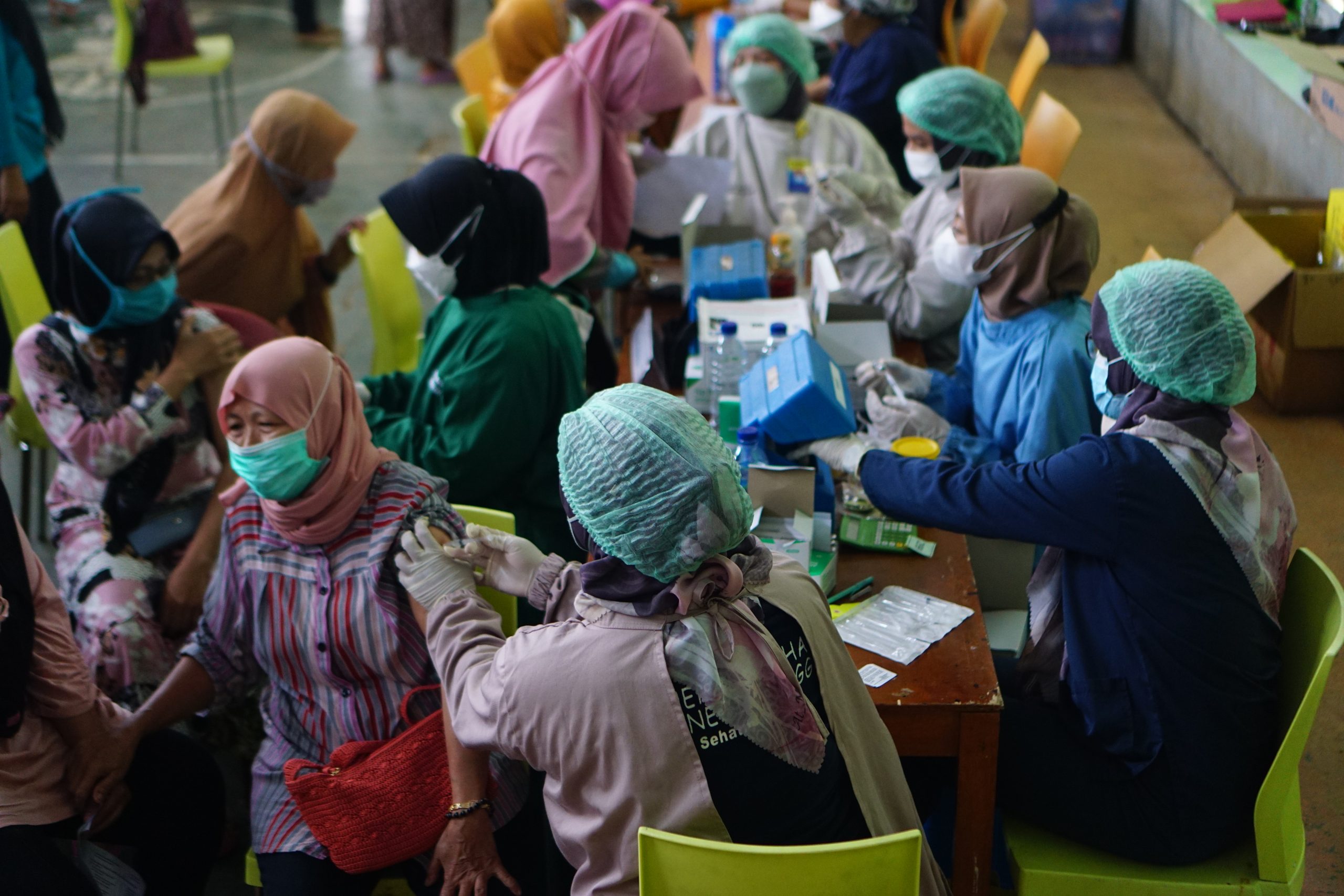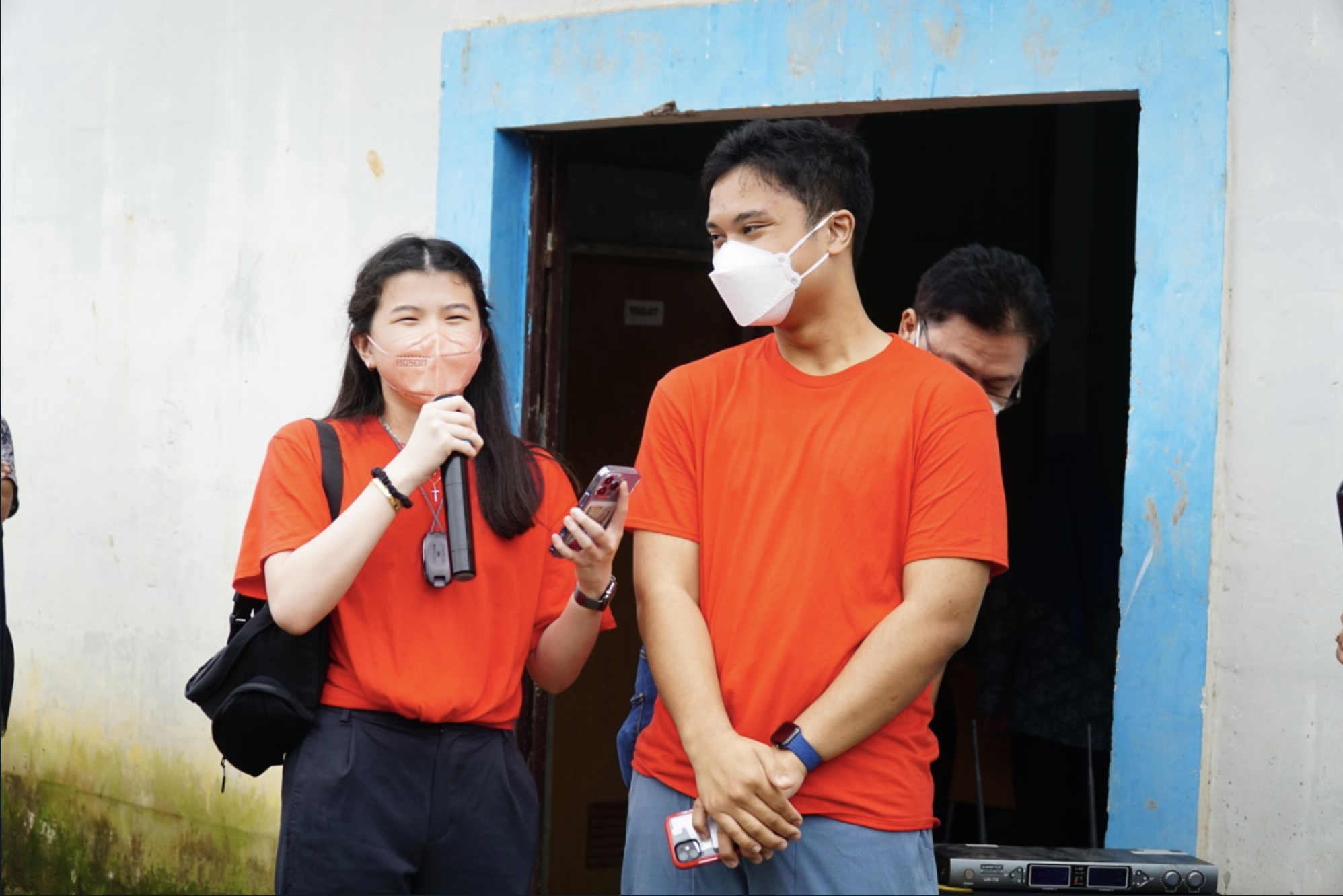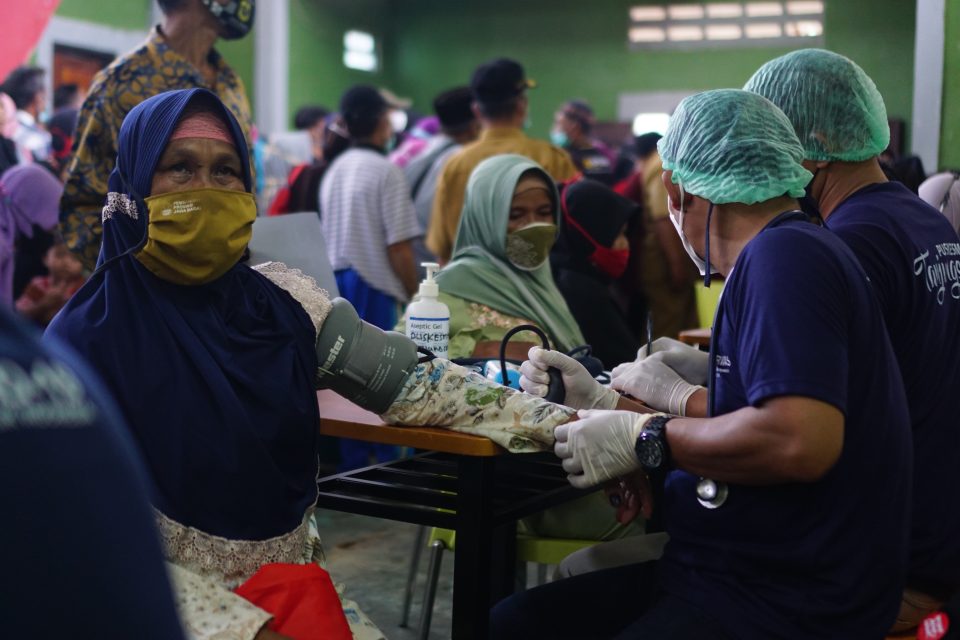Two Grade 11 students from Jakarta Intercultural School team up with a West Java Puskesmas to help curb the spread of COVID-19
COVID-19 cases in Indonesia peaked in July 2021, with upwards of 30,000 new infections a day. With alarmingly high rates of COVID-19 cases and low vaccination rates, Indonesia was bound to face economic and public health issues. And the most disproportionately affected, rural communities with even lower vaccination rates, would face the most adverse consequences.
As Grade 11 students at Jakarta Intercultural School (JIS), we found ourselves increasingly interested in how interconnected our nation’s healthcare system and its economy are and quickly recognised the urgency of increasing vaccination rates in Indonesia. So, on 15th November 2021, in collaboration with the local community health centre (Puskesmas), we launched a vaccine clinic in Tanjung Sari, West Java.
Vaccine hesitancy and mistrust toward science continue to exacerbate Indonesia’s struggle against the COVID-19 pandemic. While cosmopolitan cities such as Surabaya in East Java, Medan in North Sumatra and Jakarta continue to have soaring vaccination rates, rural provinces and isolated regions are left behind. Multiple factors, including hesitancy, lack of urgency and accessibility, continue to challenge vaccination rates. Only when efforts directly address these three issues can vaccination rates begin to rise.
Tanjung Sari district also struggled with these issues. When we reached out to its regional leaders, they explained that residents were not exactly scared to take the shot, but simply could not afford to. It became clear that the underlying issue with low vaccine rates was not mistrust; it was accessibility. We learned of many possible changes that Indonesia’s multifaceted healthcare system could make in order to increase vaccination rates, as most of the people we encountered were not inherently against vaccines.
The district only had one Puskesmas that accommodated 10 surrounding villages, making it inconvenient for residents to obtain the vaccine. Considering that workers in rural areas generally do not have the privilege of working remotely, vaccines could be an important layer of protection against the coronavirus. Due to vaccine clinics being in far proximity, giving up a day’s salary of work was on the line for anyone who wanted to get a shot. In order to get fully vaccinated, recipients would have to give up at least two days’ worth of salary for both shots, which is vital to making a living.
Many people in rural areas do not have the means to get paid leave or take a day off without worrying about whether or not they will be able to provide food for their families.
Conversations with local public health officials revealed that the provision sembako (staple food packages) would act as an effective incentive to overcome hesitancy and low vaccination rates among Tanjung Sari’s population. While people still needed to give up a day’s worth of wages to get the shot, the sembako could ensure they would not have to purchase more food supplies without that day’s income. This method has been proven to encourage individuals to go to vaccination centres in other regions of Indonesia.
Despite our initial worries over vaccine hesitancy, over the course of the day on 15th November, families and large groups of people who had not even preregistered began to arrive. At one point, we had to quickly rush to a nearby grocery store to purchase additional sembako. Bogor Regent Ade Yasin also visited our clinic to see the rapid distribution of vaccines; an important feat, she noted, as the region has long struggled with low vaccination rates.
Over the course of the clinic, we also learned the power of building trust within communities. After successful vaccinations and providing sembako, more and more people started coming. The local health officials and district leaders theorised that people would return home and talk to family or neighbours about the benefits of being vaccinated at the clinic. This cycle continued and defied all our initial expectations. After seeing that the vaccine did not harm them in any way, the community established a stronger sense of trust in their local health facilities and a stronger belief in listening to science.
Overall, the clinic successfully vaccinated people with varying vaccine statuses. Some had been vaccinated previously and attended the clinic to receive their second dose, while others were first-time recipients. In all, 1,251 people were vaccinated that day, the highest single-day total since Tanjung Sari began its vaccination efforts.
The increasingly high risk of contracting the virus, especially with the surge of the Omicron variant, remains a problem for everybody — especially rural residents. By driving up vaccine rates and eliminating vaccine hesitancy, Indonesia will gradually recover from the pandemic. The clinic showed us that more specific solutions, such as vaccine drives with the provision of basic groceries as compensation, could be implemented to incentivise Indonesians to get vaccinated.
While issues surrounding famine, poverty, domestic violence, inequality, and sustaining quality education are imperative, we must consider how the pandemic exacerbates these issues. Higher vaccinations will result in a healthier community, bringing us one step closer to the pre-pandemic way of life. With a more stable economy and a safer, healthier population, we can mitigate other underlying issues in Indonesia.
Corporations and governments that have the means could make a huge difference. If they took the initiative to fund vaccine clinics and provide sembako, the vaccination rate in Indonesia will significantly increase. Taking a single shot might seem like a small step, but doing so reaps many benefits. Recipients’ perspectives on vaccines can be changed, which is vital for future vaccinations for themselves or their children. More importantly, these vaccine clinics strengthen the sense of trust between people and local health communities. Vaccines are the boost that Indonesia needs to lift itself out of the pandemic.
Darryl and Alexandra are Grade 11 students at Jakarta Intercultural School.





